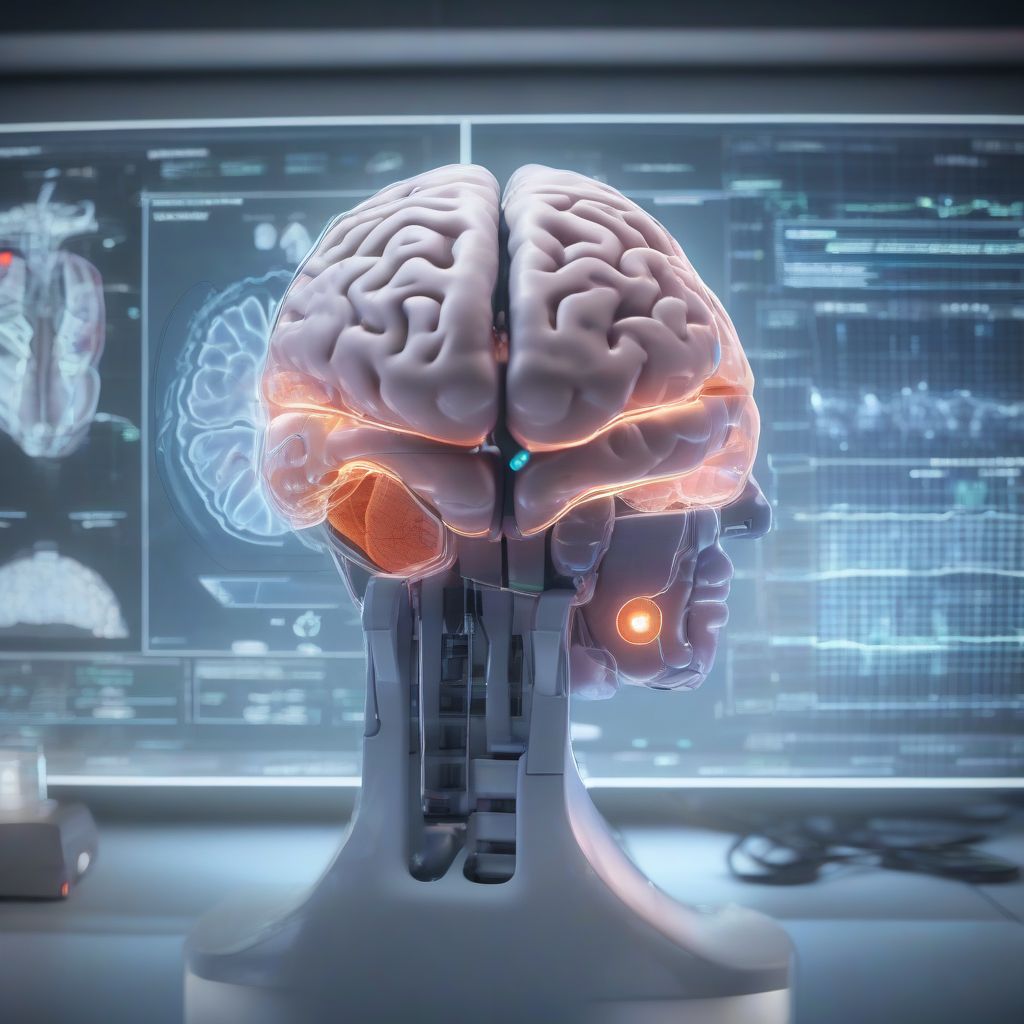Imagine a world where diagnoses are faster, more accurate, and accessible to everyone, regardless of location. This isn’t science fiction; it’s the reality AI is rapidly building within the healthcare landscape. Artificial intelligence is transforming diagnostic tools, offering the potential to revolutionize how we detect and treat diseases. From analyzing medical images to predicting patient outcomes, AI is poised to reshape the future of medicine.
The Power of AI in Medical Image Analysis
One of the most significant impacts of AI in healthcare is in medical image analysis. Radiologists and pathologists spend countless hours examining X-rays, CT scans, MRI images, and tissue samples. AI algorithms can analyze these images with remarkable speed and accuracy, identifying subtle anomalies that might be missed by the human eye. This not only accelerates the diagnostic process but also improves the accuracy of diagnoses, leading to earlier and more effective treatment.
Enhancing Accuracy and Speed
AI algorithms are trained on vast datasets of medical images, allowing them to recognize patterns and anomalies that might be invisible to even the most experienced clinicians. For example, AI-powered tools can detect early signs of diabetic retinopathy, a leading cause of blindness, by analyzing retinal images. This early detection allows for timely intervention and can prevent irreversible vision loss.
“AI is not intended to replace doctors,” says Dr. Emily Carter, a leading radiologist (fictional expert). “Instead, it’s a powerful tool that augments our abilities, allowing us to focus on the most complex cases and provide better care for our patients.”
Reducing Human Error and Bias
Human error is inevitable, even in medicine. Fatigue, distractions, and subjective biases can impact the accuracy of diagnoses. AI algorithms, however, operate consistently and objectively, minimizing the risk of human error. This is particularly crucial in time-sensitive situations where a quick and accurate diagnosis can be life-saving.
 AI Powered Medical Image Analysis
AI Powered Medical Image Analysis
Beyond Imaging: AI in Diagnostics Across Specialties
The applications of AI in diagnostics extend far beyond image analysis. AI is being used to develop diagnostic tools for a wide range of medical specialties, including:
Cardiology:
AI algorithms can analyze electrocardiograms (ECGs) to detect irregular heart rhythms and predict the risk of heart attacks.
Oncology:
AI can analyze biopsy samples to identify cancerous cells and predict the aggressiveness of tumors, aiding in treatment planning and prognosis.
Neurology:
AI can analyze brain scans to detect early signs of Alzheimer’s disease and other neurological disorders.
Infectious Diseases:
AI can analyze patient data to identify patterns and predict outbreaks of infectious diseases, enabling faster responses and containment efforts.
The Accessibility Factor: Democratizing Healthcare with AI
AI-powered diagnostic tools have the potential to democratize healthcare by making expert-level diagnostics accessible to everyone, regardless of location or socioeconomic status. Telemedicine platforms integrated with AI diagnostic tools can bring specialist care to remote areas, bridging the gap in healthcare access.
Overcoming Geographical Barriers
Imagine a patient in a rural community who needs a specialist consultation. With AI-powered telemedicine, they can access expert diagnostic services remotely, without the need for expensive and time-consuming travel.
Cost-Effectiveness and Efficiency
AI can automate many tasks currently performed by healthcare professionals, freeing up their time to focus on patient care and complex cases. This increased efficiency can lead to significant cost savings, making healthcare more affordable and accessible.
Addressing Challenges and Ethical Considerations
While the potential of AI in diagnostics is immense, there are also challenges and ethical considerations that need to be addressed.
Data Privacy and Security
AI algorithms rely on large datasets of patient information. Ensuring the privacy and security of this data is paramount. Robust data governance frameworks and security protocols are crucial to protect patient information from unauthorized access and misuse.
Algorithmic Bias and Fairness
AI algorithms are trained on data, and if the data reflects existing biases, the algorithms can perpetuate and even amplify these biases. It’s crucial to develop and implement strategies to mitigate algorithmic bias and ensure fairness in AI-powered diagnostics.
The Human Element: Maintaining the Doctor-Patient Relationship
While AI can enhance diagnostic capabilities, it’s essential to remember that healthcare is ultimately about people. The doctor-patient relationship is built on trust, empathy, and human connection. AI should be used to augment, not replace, this vital relationship.
 Doctor Patient Interaction with AI Assistance
Doctor Patient Interaction with AI Assistance
The Future of AI in Diagnostics
The future of AI in diagnostics is bright. As AI technology continues to evolve, we can expect to see even more innovative applications emerge. From personalized diagnostics based on individual genetic profiles to real-time disease monitoring, AI has the potential to transform healthcare in ways we can only imagine.
Conclusion
AI is revolutionizing diagnostic tools in healthcare, offering the potential to improve accuracy, speed, and accessibility of diagnoses. From medical image analysis to predicting patient outcomes, AI is transforming how we detect and treat diseases. While challenges remain, the future of AI in diagnostics is promising, paving the way for a healthier and more equitable future for all. We encourage you to share your thoughts and experiences with AI in healthcare in the comments below. What are your hopes and concerns about this rapidly evolving field? Let’s discuss!



